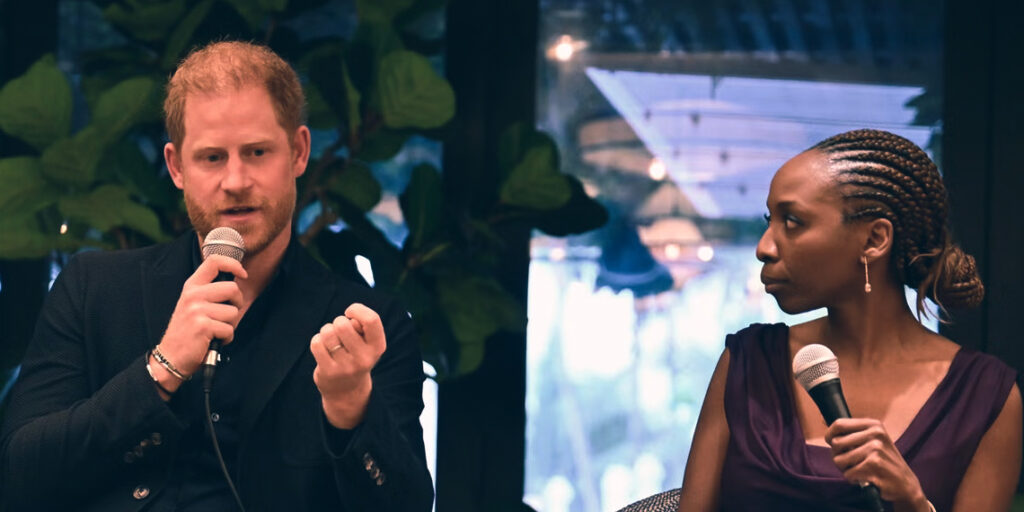Dr Sophie Chandauka, the head of the charity Sentebale co-founded by Prince Harry, has accused the Duke of Sussex of “bullying and harassment at scale.”
This allegation comes following her resignation and that of Prince Harry and Prince Seeiso, the co-founders, earlier this week. The charity, which focuses on youth in southern Africa, was founded in 2006.
Dr Chandauka detailed a rift caused by Prince Harry’s decision to release a potentially damaging statement without prior consultation with key charity executives, an act she described during her appearance on Sky’s “Sunday Morning with Trevor Phillips.”
She expressed the significant impact this had on herself and the 540 Sentebale employees.
The departure of the charity’s patrons was framed as a show of solidarity with the trustees who left after disagreements with Dr Chandauka escalated to what was described as “beyond repair.”
Dr Chandauka criticized what she termed as the “unleashing of the Sussex machine,” referring to the public relations efforts associated with Prince Harry, which she argued adversely affected the charity and its staff.
Responding to these allegations, Prince Harry’s representatives refrained from a formal response, while a source close to the charity’s former trustees dismissed the claims as “completely baseless,” according to Sky News.
Furthermore, in an interview with the Financial Times, Dr Chandauka labeled Prince Harry’s brand as “toxic,” posing a significant risk to Sentebale.
She accused the princes of creating scenarios to heroically intervene, albeit suggesting Sentebale would persevere with or without their involvement.
The charity, dedicated to helping young people affected by AIDS in Lesotho and Botswana, was inspired by the princes’ late mothers, including Princess Diana, who died in a car crash in 1997 and Seeiso’s mother, the former queen of Lesotho, who passed away in 2003.
Dr Chandauka, originally from Zimbabwe and a London-trained lawyer, highlighted the evolving dynamics within Sentebale.
She pointed out that the traditional structure of the charity, which relied heavily on decisions from its UK-based board, was increasingly viewed as outdated in a post-Black Lives Matter era, with a growing demand for locally-led initiatives.
This shift towards local leadership has caused unease among the UK-based board members, as noted by Dr Chandauka, who cited a perceived loss of control and influence, summing up the sentiment with, “Oh my goodness, the Africans are taking over.”


